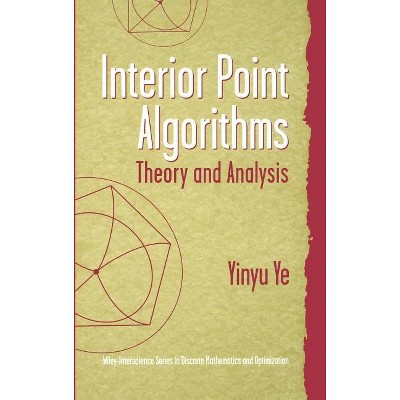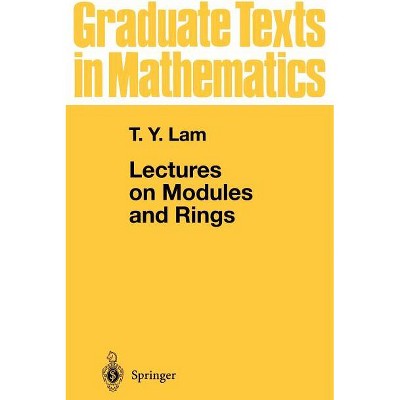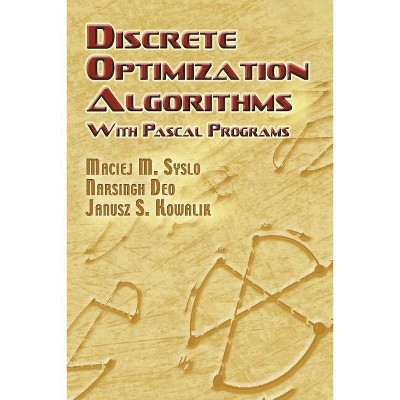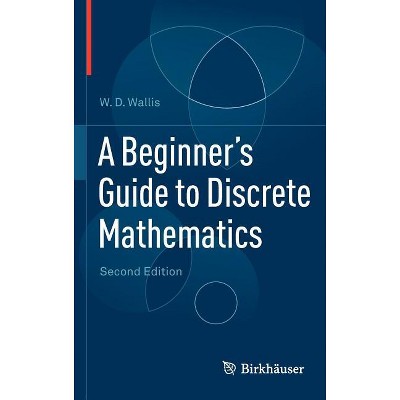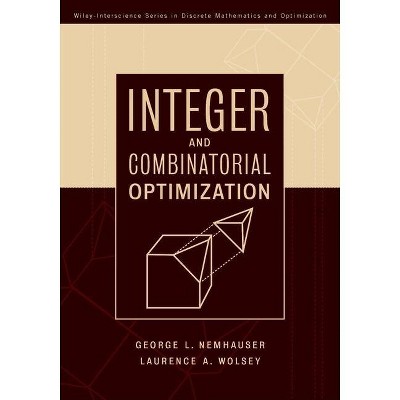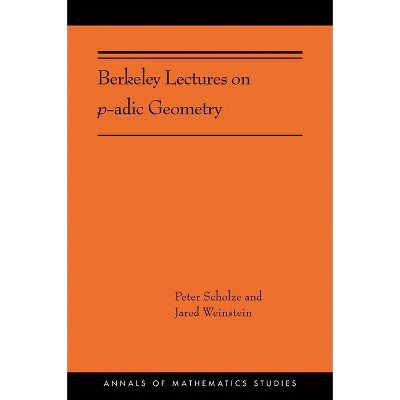Sponsored

Discrete Mathematics - (Synthesis Lectures on Mathematics & Statistics) by George Tourlakis (Hardcover)
In Stock
Sponsored
About this item
Highlights
- This book is ideal for a first or second year discrete mathematics course for mathematics, engineering, and computer science majors.
- About the Author: George Tourlakis, Ph.D., is a Professor in the Department of Electrical Engineering and Computer Science at York University, Toronto, Canada.
- 253 Pages
- Mathematics, Discrete Mathematics
- Series Name: Synthesis Lectures on Mathematics & Statistics
Description
Book Synopsis
This book is ideal for a first or second year discrete mathematics course for mathematics, engineering, and computer science majors. The author has extensively class-tested early conceptions of the book over the years and supplements mathematical arguments with informal discussions to aid readers in understanding the presented topics. "Safe" - that is, paradox-free - informal set theory is introduced following on the heels of Russell's Paradox as well as the topics of finite, countable, and uncountable sets with an exposition and use of Cantor's diagonalisation technique. Predicate logic "for the user" is introduced along with axioms and rules and extensive examples. Partial orders and the minimal condition are studied in detail with the latter shown to be equivalent to the induction principle. Mathematical induction is illustrated with several examples and is followed by a thorough exposition of inductive definitions of functions and sets. Techniques for solving recurrence relations including generating functions, the O- and o-notations, and trees are provided. Over 200 end of chapter exercises are included to further aid in the understanding and applications of discrete mathematics.From the Back Cover
This book is ideal for a first or second year discrete mathematics course for mathematics, engineering, and computer science majors. The author has extensively class-tested early conceptions of the book over the years and supplements mathematical arguments with informal discussions to aid readers in understanding the presented topics. "Safe" - that is, paradox-free - informal set theory is introduced following on the heels of Russell's Paradox as well as the topics of finite, countable, and uncountable sets with an exposition and use of Cantor's diagonalisation technique. Predicate logic "for the user" is introduced along with axioms and rules and extensive examples. Partial orders and the minimal condition are studied in detail with the latter shown to be equivalent to the induction principle. Mathematical induction is illustrated with several examples and is followed by a thorough exposition of inductive definitions of functions and sets. Techniques for solving recurrence relations including generating functions, the O- and o-notations, and trees are provided. Over 200 end of chapter exercises are included to further aid in the understanding and applications of discrete mathematics.
In addition, this book:
- Provides a concise but mathematically rigorous and correct approach with examples and exercises to help readers understand key definitions and theorems;
- Features careful attention to current mathematical terminology, mathematical techniques, and results;
- Presents coverage of equivalence and order relations, minimal condition, and inductive definitions of functions and sets.
Review Quotes
"The book is recommended ... . Each chapter concludes with many exercises ... . The student who masters this book will have learned the foundations of discrete mathematics!" (Padraig Ó Catháin, zbMATH 1541.05001, 2024)
About the Author
George Tourlakis, Ph.D., is a Professor in the Department of Electrical Engineering and Computer Science at York University, Toronto, Canada. He obtained his B.Sc. in mechanical and electrical engineering from the National Technical University of Athens and his M.Sc. and Ph.D. in computer science from the University of Toronto. Dr. Tourlakis has authored eight books in computability, logic, and axiomatic set theory and has also authored several journal articles in computability and modal logic. His research interests include calculational logic, modal logic, proof theory, computability with partial oracles, and complexity theory.





